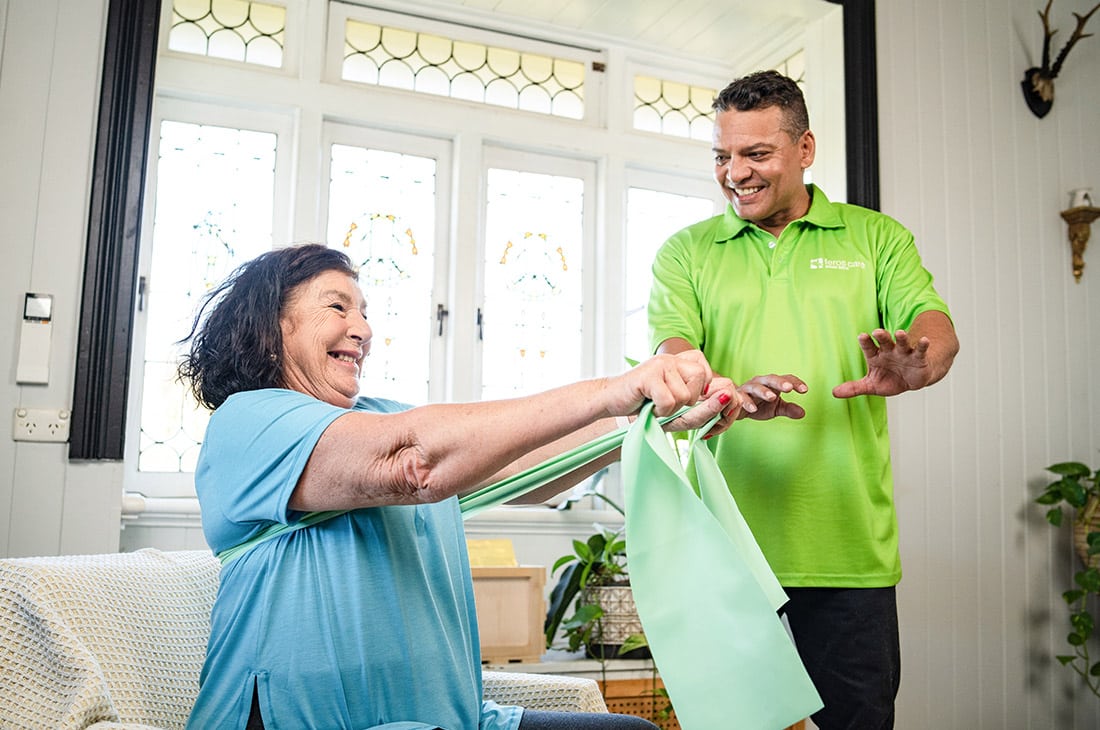Searching For Reliable Home Care Providers: Vital Tips for In Home Caregivers in Australia
Searching For Reliable Home Care Providers: Vital Tips for In Home Caregivers in Australia
Blog Article
How In Home Care Givers Address the One-of-a-kind Obstacles and Psychological Requirements of Family Members Seeking Support for Their Relatives
In-home caretakers play a critical function in navigating the complexities encountered by families seeking support for their enjoyed ones. By recognizing one-of-a-kind household dynamics and providing customized emotional assistance, these experts not only address immediate treatment needs however also promote an atmosphere of count on and open communication. This strategy is necessary in managing the psychological stress typically experienced by families, as it acknowledges their issues and validates their experiences. The subtleties of this partnership prolong beyond simple caregiving; the implications for household well-being and caregiving efficiency warrant additionally exploration.
Recognizing Family Characteristics
Comprehending family members dynamics is crucial for offering efficient at home treatment, as each household runs within an unique set of connections and communications. These dynamics encompass different components, consisting of interaction designs, duties, and power structures that affect just how treatment is provided and received. The caregiver must recognize these elements to guarantee that treatment strategies straighten with the family members's worths and expectations.
Different families might show unique patterns of interaction, such as joint approaches or hierarchical structures. In some households, a primary decision-maker might hold significant influence, while in others, choices might be much more autonomous. Comprehending these patterns assists caregivers customize their methods to fit the family members's details needs.
In addition, cultural histories play a vital duty in forming family characteristics. Caretakers must be culturally experienced, recognizing and respecting diverse methods and ideas that may influence care preferences.
Inevitably, a detailed understanding of family characteristics promotes boosted communication, promotes trust, and improves the caretaker's capability to sustain the family successfully. By recognizing the detailed web of duties and connections, caretakers can develop an encouraging setting that promotes wellness for both the specific receiving care and the family as a whole.
Providing Emotional Support
Supplying emotional assistance is a crucial component of in-home care that significantly improves the health of both the individual receiving care and their relative. In the context of caregiving, psychological assistance includes active listening, compassion, and recognition of sensations. Caretakers are educated to identify the emotional struggles that families face, such as isolation, shame, and anxiety, and to provide a compassionate visibility that reduces these problems.
By cultivating open interaction, caregivers create a risk-free room for relative to express their concerns and concerns. This dialogue not only urges psychological launch however likewise reinforces depend on between the household and the caretaker. Additionally, caretakers can use functional techniques to help family members handle anxiety and advertise strength.

Ultimately, the emotional support given by in-home caregivers improves the lifestyle for both customers and their family members, advertising a more compassionate and understanding caregiving setting. This holistic method ensures that emotional requirements are resolved together with physical wellness factors to consider.
Taking Care Of Daily Treatment Tasks
Handling daily treatment tasks is a critical facet of in-home treatment that makes sure people receive the assistance they need to preserve their health and freedom. Caretakers play a crucial role in aiding with activities of everyday living (ADLs), which include showering, dressing, brushing, and meal prep work. By handling these responsibilities, caretakers help alleviate the psychological and physical concerns that family members may encounter while taking care of their loved ones.
Along with individual treatment, caregivers are likewise charged with drug management, making certain that clients stick to suggested dosages and schedules. This oversight is vital for maintaining health and wellness and stopping damaging impacts from missed out on or incorrect medicines. Caregivers usually assist with mobility, offering support for customers moving around their homes, thus decreasing the danger of falls and improving overall safety.

Fostering Open Communication
Effective administration of day-to-day care tasks usually rests on the top quality of communication between caretakers, customers, and their families. Open up communication promotes a setting where issues, preferences, and comments can be openly exchanged, making certain that treatment is customized to fulfill private requirements. Caretakers need to focus on routine check-ins with both customers and their family members, helping with discussions that attend to any type of issues or modifications in care demands.
Making use of various communication methods-- such as face-to-face meetings, call, and composed updates-- can improve understanding and give family members with tranquility of mind. It's important for caregivers to actively listen, demonstrating look here empathy and respect for the psychological landscape of the family members. Urging questions from relative can additionally aid make clear treatment strategies and enhance the caretaker's dedication to transparency.
In addition, maintaining open lines of communication enables caregivers to acknowledge and respond immediately to any kind of changes in a client's health status or psychological health. This aggressive strategy not just strengthens the caregiver-client vibrant yet likewise equips households to take part actively in the care process. Ultimately, cultivating open communication is vital for boosting the quality of at home care and advertising a helpful atmosphere for all entailed.
Structure Depend On and Relationships
Trust is the keystone of successful at home care, as it develops a foundation for purposeful connections between caregivers, clients, and their families. Structure this trust needs regular, clear interaction and an authentic commitment to the wellness of those involved. Caretakers should show reliability with preparation, adherence to care plans, and responsiveness to the requirements and preferences of clients.
To cultivate trust, caregivers need to take part in energetic listening, making sure that family members feel heard and recognized. This includes not just addressing immediate worries however additionally anticipating future requirements, consequently encouraging families and boosting their sense of control. Developing connection via shared experiences and considerate communications can even more strengthen these relationships.
In addition, caretakers must be educated to recognize and deal with the emotional intricacies dealt with by households. By revealing compassion and concern, they can reduce uncertainties and anxieties, enhancing trust fund. Normal updates and check-ins with member of the family can additionally boost openness, allowing them to feel involved and informed about their loved one's treatment.
Inevitably, developing trust fund and nurturing relationships in at home care is a joint procedure that dramatically impacts the high quality of treatment provided, promoting an encouraging setting that profits every person entailed.
Final Thought
By comprehending family characteristics, giving psychological support, and cultivating open interaction, caregivers boost the total caregiving experience - home care providers. Their capacity to manage day-to-day treatment jobs while constructing depend on and strong connections grows an encouraging environment for customers and their family members.
Comprehending family dynamics is essential for supplying effective at home treatment, as each family members operates within an unique collection of interactions and connections.Supplying emotional assistance is a crucial component of in-home treatment that significantly improves the wellness of both the individual getting treatment and their family members. By taking on these obligations, caregivers aid alleviate the physical and emotional worries that households might deal with while caring for their loved ones.
Efficient monitoring of day-to-day treatment jobs frequently click to investigate pivots on the top quality of interaction in between caregivers, customers, and their family members - home care providers australia.Trust fund is the keystone of effective at home care, as it develops a foundation for purposeful partnerships in between caretakers, clients, and their family members
Report this page